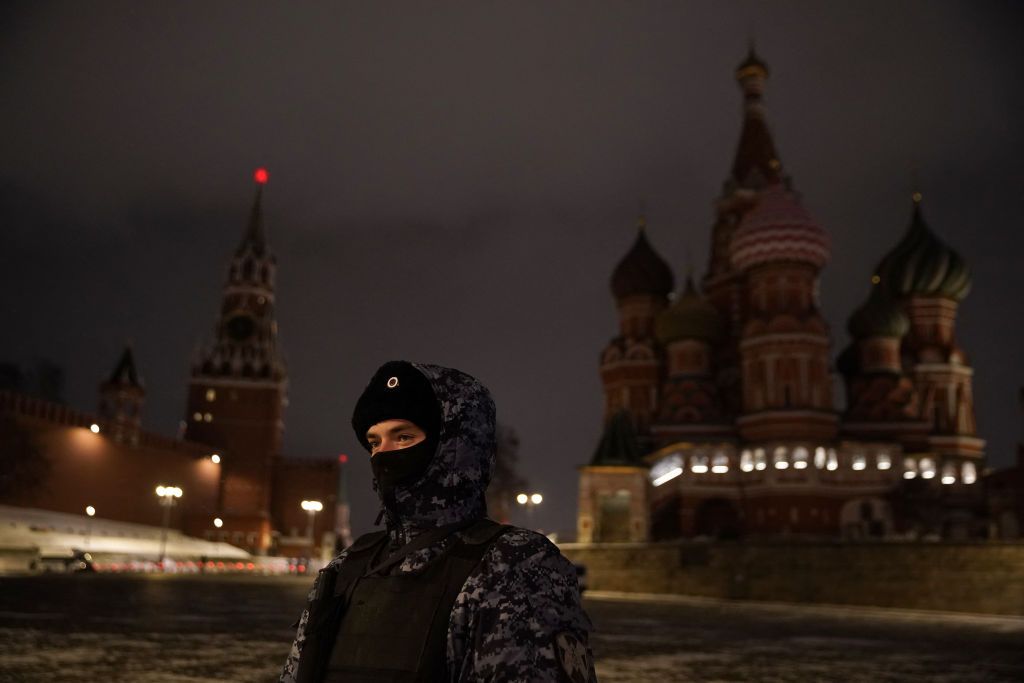West’s response to Macron comments on troops to Ukraine reveal discord, weakness, experts say
French President Emmanuel Macron was left on his lonesome by his fellow European allies after saying that the possibility of sending Western troops on the ground in Ukraine should not be "ruled out" in the future. Macron made the remarks on Feb.
26 at a gathering of 20 European heads of state and other Western officials at an allied conference in Paris to reaffirm support for Ukraine as Russia's war against the country enters its third year. "Everything was discussed this evening, in a very free and direct manner.
There is no consensus today to send officially, take responsibility for, and endorse ground troops. But in terms of options, nothing should be ruled out," Macron said. "We will do everything needed so Russia cannot win the war."
Macron's comments prompted swift responses from both the U.S. and European countries, who reiterated their public positions that none of their troops would be sent to Ukraine to join in the fight against Russia.
Czech PM: 'No one in Europe is going to send troops to Ukraine' "It's not a topic because this idea is unacceptable for the vast majority of countries. No one in Europe is going to send troops to Ukraine," the Czech prime minister noted.
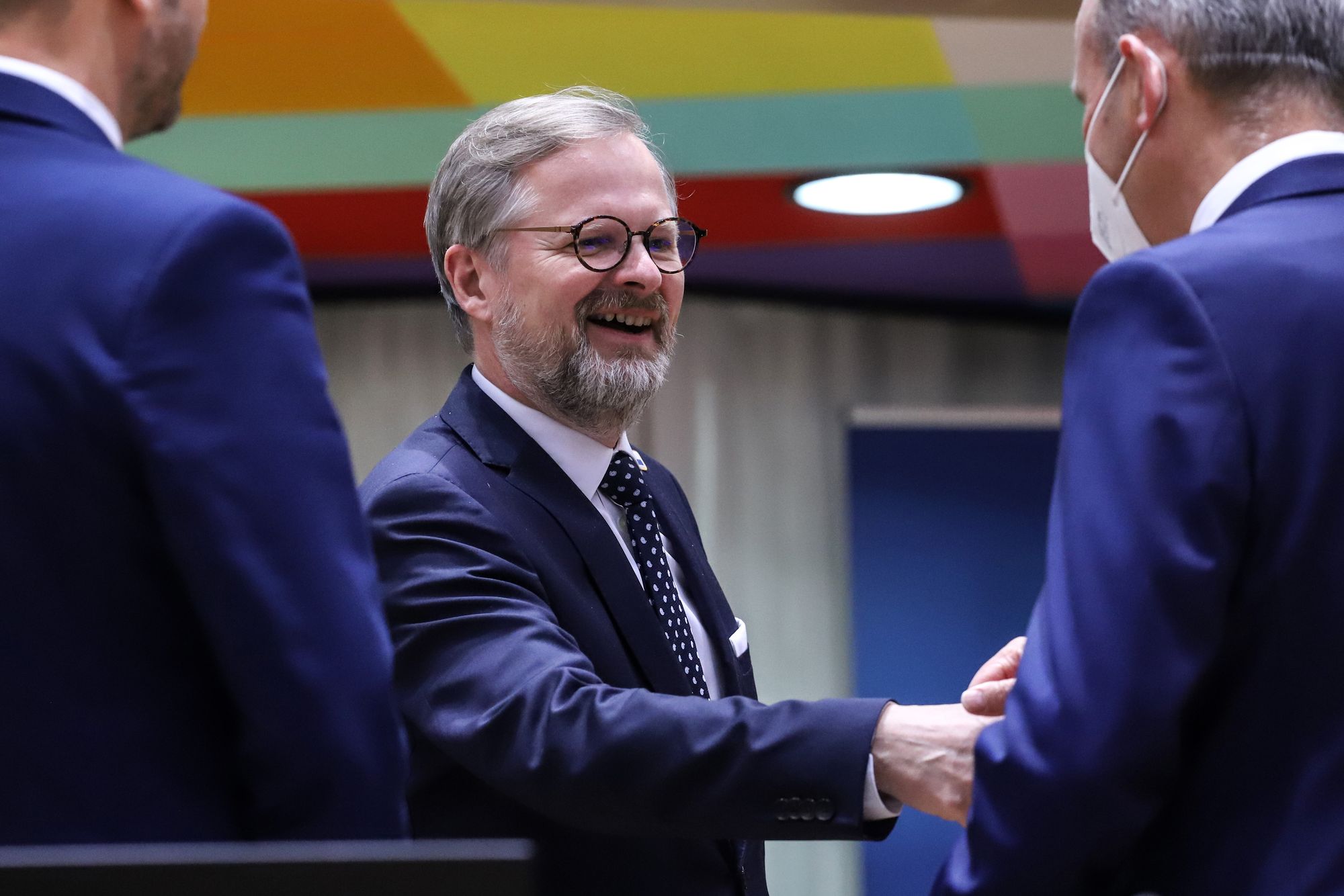
While foreign militaries fighting in Ukraine may never come to fruition, keeping the option on the table could unsettle Moscow and keep it guessing as to what Europe's plans are, experts say.
"(It is) important to keep all options open, to not tell the Russians what we won't do. It was a mistake when U.S. President Joe Biden did that just before Russia's large-scale invasion two years ago," U.S.
Lieutenant General (Ret.) Ben Hodges told the Kyiv Independent. Public disagreements and communicating to Russia that they will never send troops to Ukraine could also undermine Western allies' cohesion and potentially signal vulnerability to Moscow, Hodges said. Clarifying the remarks, French Foreign Minister Stephane Sejourne told French lawmakers that the comments were meant to spark debate on the issue but that there were no concrete plans on the issue, France 24 reported.
"We must consider new actions to support Ukraine. These must respond to very specific needs, I am thinking in particular of mine clearance, cyber defense, the production of weapons on site, on Ukrainian territory," Sejourne said. "Some of its actions could require a presence on Ukrainian territory without crossing the threshold of fighting.
Nothing should be ruled out. This was and still is the position today of the president of the (French) Republic."
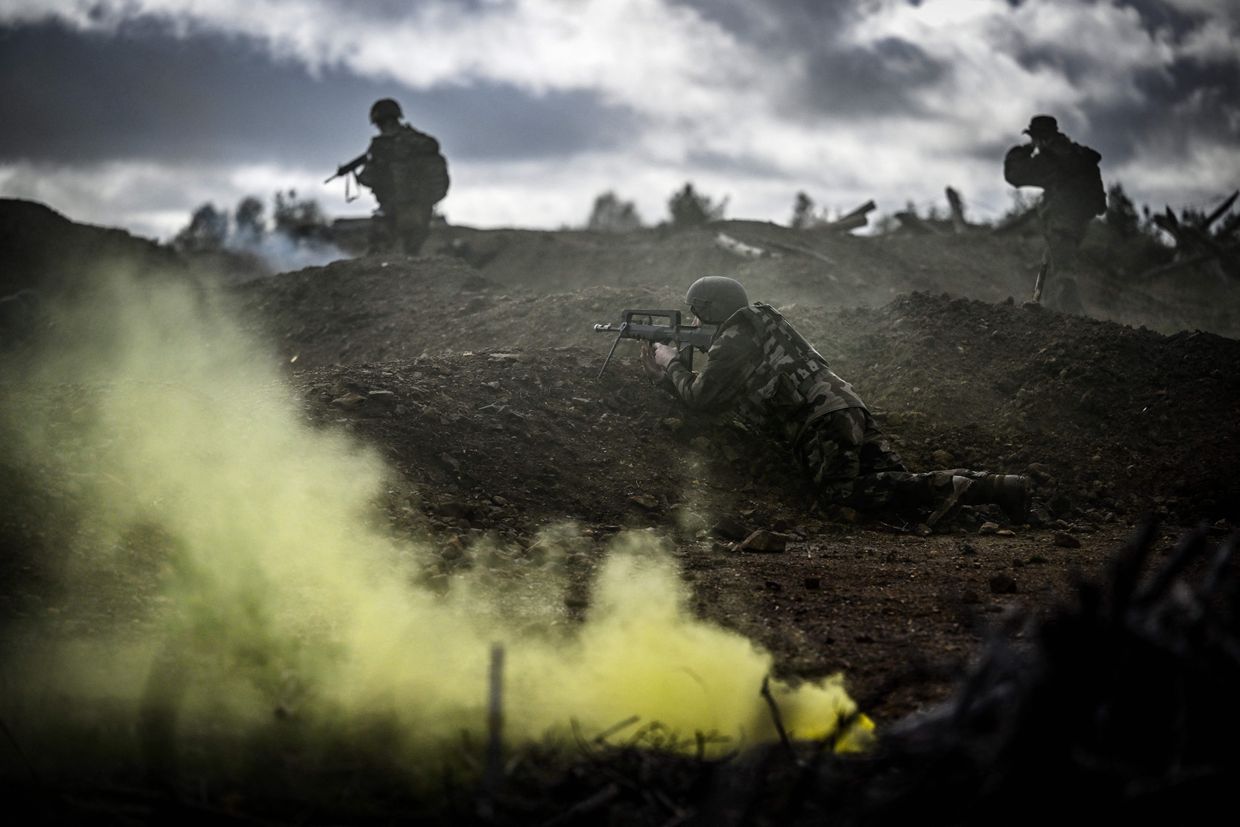 Ukrainian soldiers walk during a training exercise with French soldiers at a French military camp in France in November 2023. (Olivier Chassignole/AFP via Getty Images)
Ukrainian soldiers walk during a training exercise with French soldiers at a French military camp in France in November 2023. (Olivier Chassignole/AFP via Getty Images)
Macron's comments are nonetheless a marked departure from the obstinate position among Kyiv's Western allies regarding the potential deployment of their soldiers to Ukraine. As further funding for Ukraine remains tied up in Congress, the French president has recently insisted that Europe must be capable of standing on its own in its support for Ukraine.
His Feb.
26 remarks may be a calculated attempt by Macron to strengthen Europe's overall strategic position as an ally of Ukraine in the fight against Russia. During his speech in Paris, he declined to provide specifics regarding which nations were considering sending troops, adding that he prefers maintaining some "strategic ambiguity."
NATO members say they are not considering sending troops to Ukraine NATO Secretary-General Jens Stoltenberg, as well as leaders of Germany, the U.K., and other European NATO member states, have reportedly said they are not considering deploying their troops to Ukraine after French President Emmanuel Macron suggested the possibility of Western military presence in th...
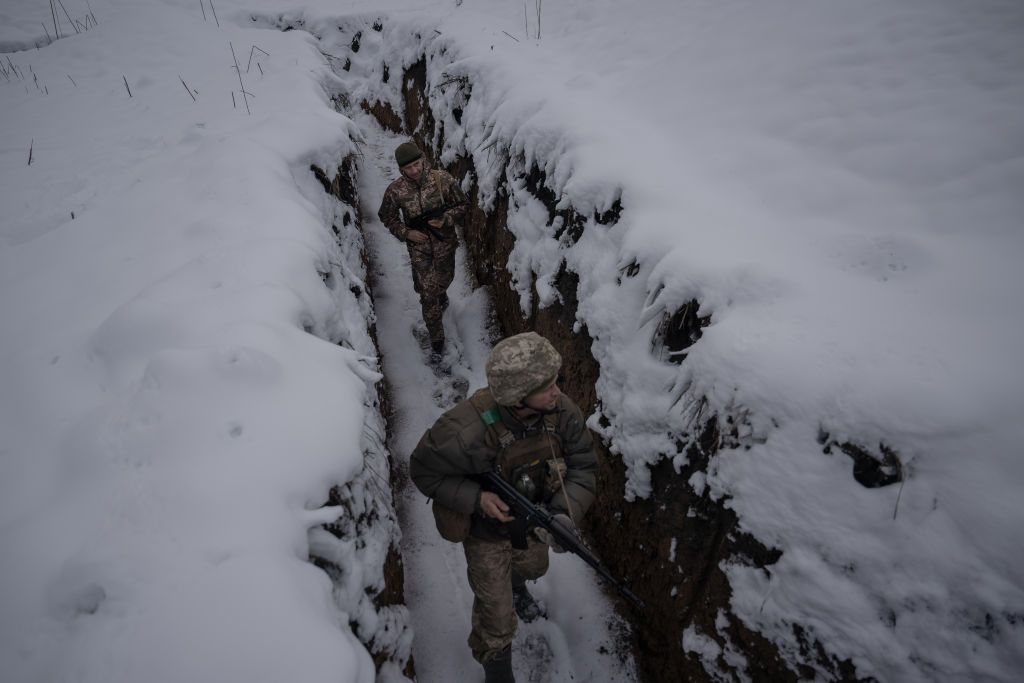
This is not the first time Macron has spoken outside the box, said Nathalie Tocci, a director of the International Affairs Institute in Rome.
"This has the value of saying what many think and do not say. It helps catalyze a strategic debate that Europe often lacks," Tocci told the Kyiv Independent, adding that nevertheless, the timing of the comments may have created more problems that they solved. Macron's remarks come as Ukrainian troops face ammunition shortages while Russia is on its offensive in several directions in eastern Ukraine and just captured a major stronghold, Adviivka.
"Macron was signaling that Europeans simply cannot afford and will do whatever it takes to prevent Ukraine from losing the war," said Tocci.
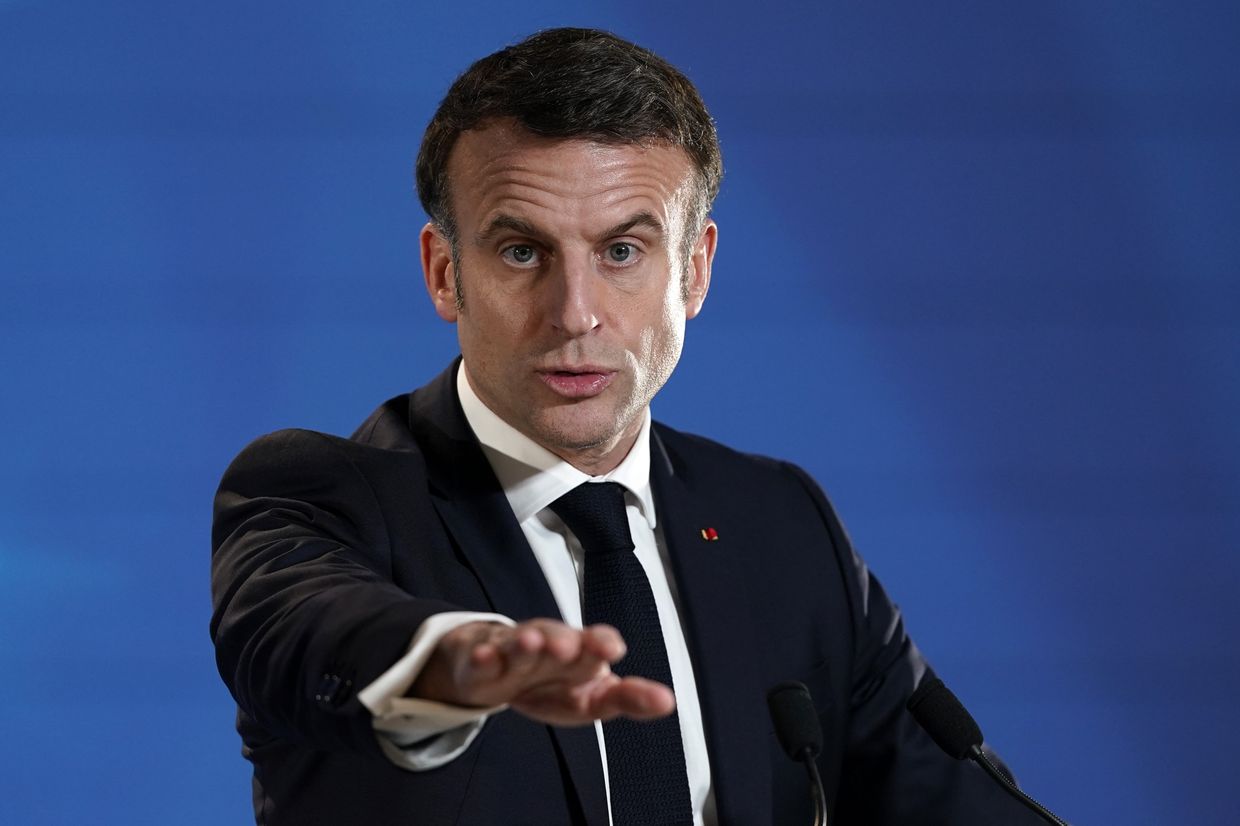 French President Emmanuel Macron talks during the press conference with media at the end of EU Summit in Brussels on Feb.
French President Emmanuel Macron talks during the press conference with media at the end of EU Summit in Brussels on Feb.
01, 2024. (Pier Marco Tacca/Getty Images)
Reiterating current levels of support for Ukraine
Western leaders' reactions to Macron's comments do not signal a willingness to do whatever it takes, however. Following the statement, U.S. President Joe Biden's administration emphasized providing military aid to Ukraine and reaffirmed Washington's stance against sending troops to fight in the region.
President Biden "has been clear that the U.S. will not send troops to fight in Ukraine," National Security Council spokeswoman Adrienne Watson said on Feb.
27. U.K. Prime Minister Rishi Sunak's spokesperson said on Feb.
29 that there is a "small number of personnel" in Ukraine who support the country's military, but that there are no "plans for large-scale deployment" beyond the existing support. Meanwhile, Chancellor Olaf Szholz of Germany, the biggest European aid contributor to Ukraine, said on Feb.
27 that "in a very good debate, it was discussed that what was agreed from the outset among ourselves and with each other also applies to the future, namely that there will be no ground troops, no soldiers on Ukrainian soil sent there by European countries or NATO states." This stance was echoed across Europe.
Italy, Poland, Czech Republic, Finland, and Spain, were among those who repeated support to Ukraine while maintaining their position that they would not be sending their troops to Ukraine. The reactions also fueled disagreements between France and Germany, one of Ukraine's major allies. Macron's remark was "deliberately ambiguous to create uncertainty for Russian military planners" but "went against the wishes of Scholz's office," Bloomberg reported on March 1, citing unnamed officials familiar with the matter.
Bloomberg also reported the recent disagreement as a sign of the two leaders' "longstanding difficulties" in relations and different approaches, which can "jeopardize" the war's course.
NATO members say they are not considering sending troops to Ukraine NATO Secretary-General Jens Stoltenberg, as well as leaders of Germany, the U.K., and other European NATO member states, have reportedly said they are not considering deploying their troops to Ukraine after French President Emmanuel Macron suggested the possibility of Western military presence in th...

"Weakness provokes (Russians) to do what they do. It's not just Putin.
It's always been this way. So it's dangerous when we in the West look weak, don't have resolve, are not united, or are not prepared to do whatever is necessary to protect (Ukraine)," said Hodges. Europe might also not be militarily ready to send its troops to Ukraine.
Macron's logic of leaving the option on the table would work only "if Europeans were actually capable of doing that," said Sven Biscop, European foreign and security policy expert at EGMONT Institute in Brussels. "If it was a real possibility, and we had the troops ready to go, then it could be a signal to Putin. But we cannot do it.
It's obvious, including to Russia, that it is a bluff," Biscop told the Kyiv Independent, adding that Europe should also not look for escalation. Meanwhile, the Kremlin listened carefully to Western leaders ruling out the possibility of sending troops to Ukraine, claiming Macron's comments were evidence of escalation and threatening the use of nuclear weapons. Russian President Vladimir Putin claimed during a two-hour State of the Nation address on Feb.
29 that there will be "tragic consequences" if NATO troops are sent to Ukraine, and the West's support for Kyiv "risks a conflict using nuclear weapons." Nonetheless, Hodges believes that each time Russia uses a nuclear threat it makes Putin look weak. "(Russians) are not going to use a nuclear weapon because there's no benefit for Russia.
Their nuclear weapons are only useful if they don't use them because (they) can threaten people with nuclear strikes. Because (Putin) sees how we react to it," said Hodges, adding that using nukes will have catastrophic consequences for Russia.
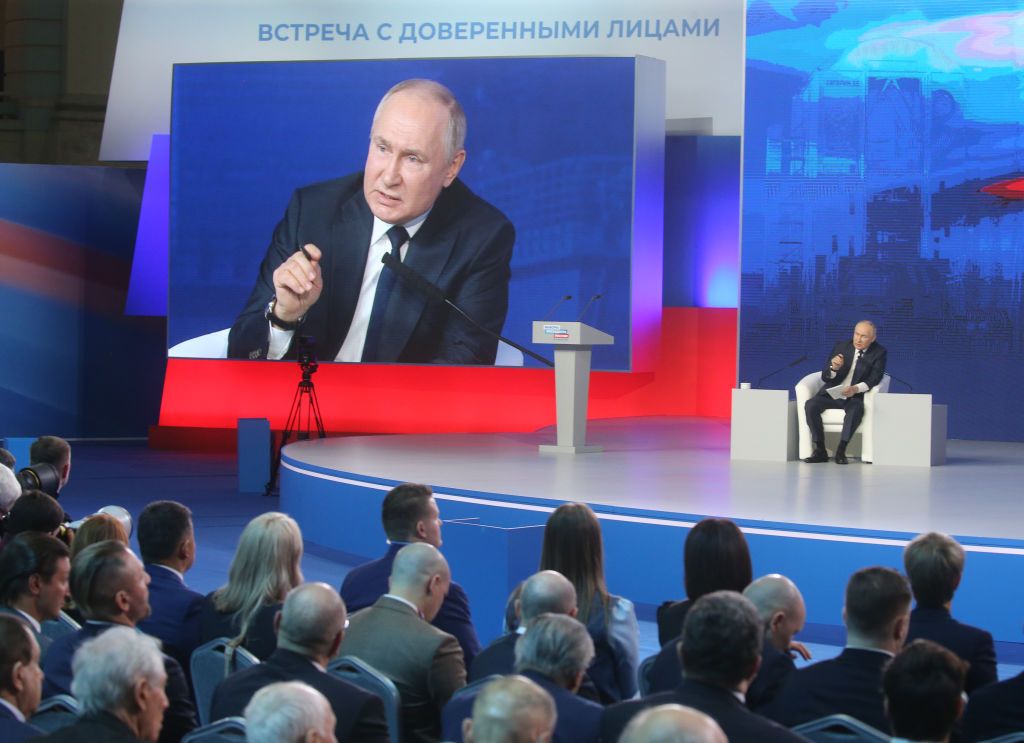 Russian President Vladimir Putin gives a speech ahead of ???
Russian President Vladimir Putin gives a speech ahead of ???
2024 Russian presidential election in Moscow, Russia, on Jan.
31, 2024. (Contributor/Getty Images)
Long-range weapon systems coalition
Fears of escalation with Russia have partly prevented Western partners from readily transferring the weapons Ukraine desperately requests, while the difficulty to ramp up production in Europe has also left it scrambling to supply Kyiv with what it needs. "Rather than talking about troops, Europeans should send more and better weapons to Ukraine," Tocci said.
To do so, it will have to ramp up weapons and ammunition production, and strengthen its forces, according to Biscop. But that may not be so easy. "When it comes to more (weapons) it is France, like Italy, that is badly, in fact shockingly, wanting," said Tocci. At the Paris summit on Ukraine, Macron announced on Feb.
26 that a new coalition will work to supply Ukraine with "medium- and long-range missiles and bombs." France and other allies will "create a coalition for deep strikes and therefore medium- and long-range missiles and bombs," Macron told reporters. Ukraine has long appealed to allies for long-range weapons, including the U.S.-made Army Tactical Missile Systems (ATACMS) and Germany's Taurus missiles.
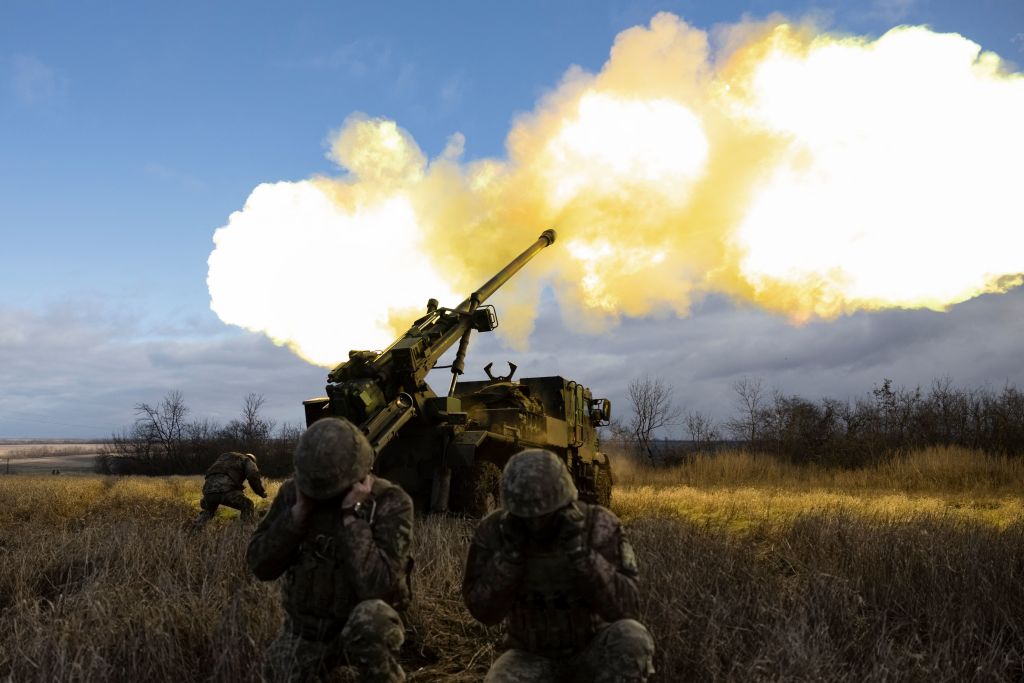 Ukrainian servicemen fire with a French-made CAESAR self-propelled howitzer toward Russian positions in eastern Ukraine on Dec.
Ukrainian servicemen fire with a French-made CAESAR self-propelled howitzer toward Russian positions in eastern Ukraine on Dec.
28, 2022. (Sameer Al-Doumy/AFP via Getty Images)
To alleviate fears among Western partners, President Volodymyr Zelensky said on Feb.
24, the anniversary of Russia's full-scale invasion, that Ukraine will not use Western systems to strike targets in Russia. France has already supplied Ukraine with long-range SCALP missiles, the equivalent of the British Storm Shadows. These can travel up to 250 kilometers, a shorter range than that of ATACMS and Taurus missiles.
"Today, the initiatives we have launched will be put on the table, and in 10 days' time, you will have a clear answer with a serious agenda," Macron said, without specifying the types of long-range systems discussed. He also said that some of the initiatives shouldn't be made public. "If any initiatives in the world strengthen Ukraine, they are positive for the whole world," Zelensky said following Macron's announcements.
But the timing of deliveries matters. Zelensky has repeatedly said that every weapons supply delay costs Ukrainians their lives. The "survival for Ukraine means having very concrete solutions," Zelensky told reporters on Feb.
28 following the Ukraine-South East Europe Summit in Albania. Recent developments indicate Western allies need to establish a clear objective, maintain confidence, and enhance the organization "for supporting Ukraine to win," Hodges said. "We're not organized properly.
That's why we're having problems finding ammunition and weapons, and there are disagreements on what to provide," said Hodges.
Russia's descent into totalitarianism: How it happened It is difficult to pin down the exact moment that Russia began morphing into a totalitarian state. For over a decade, the Kremlin was taking away civil liberties and feeding the population a revamped and increasingly more aggressive version of nationalism.
For nearly a decade, most Russians didn't...
